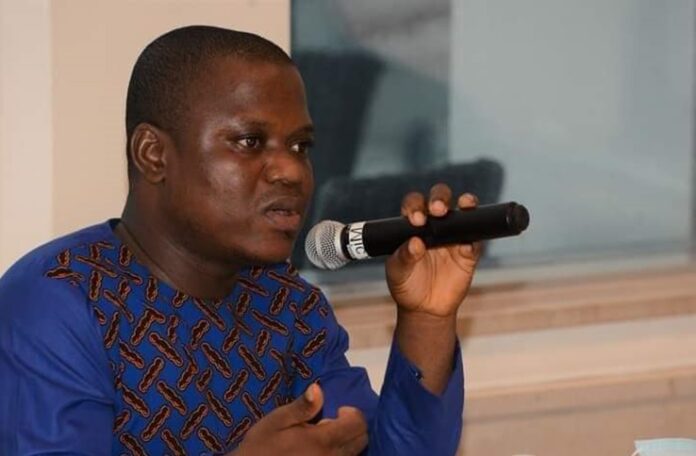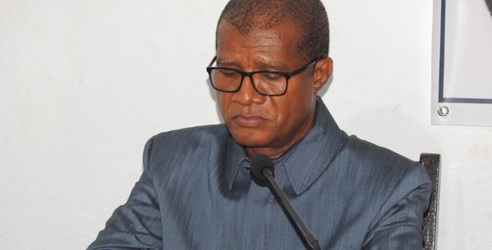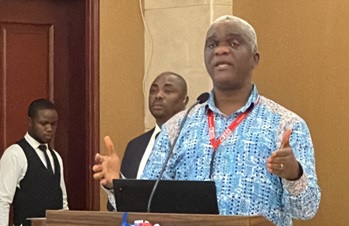MONROVIA – The Boakai administration’s procurement of 285 earth-moving machines has sparked significant controversy, raising serious concerns about transparency and governance in Liberia. This issue underscores the need for strict adherence to accountability and the rule of law in the government’s operations.
Mr. Anderson D. Miamen, Executive Director of the Center for Transparency and Accountability in Liberia (CENTAL), expressed his discontent on social media. “The Government of Liberia is proceeding wrongly regarding the ‘Yellow Machines’,” Miamen stated. “We need roads, but not at the expense of our laws and accountability frameworks and processes. The glaring lack of transparency around the yellow machines or earth-moving equipment saga leaves many questions unanswered. What is the Government trying to hide? This is highly concerning!”
Miamen’s concerns are echoed by other critics, including Moses Sandy, a Liberian journalist based in the United States, and Nimba County District #7 Representative Musa H. Bility. Sandy appreciates the government’s commitment to road rehabilitation and construction but is troubled by the secrecy and lack of clarity surrounding the procurement process. “Most Liberians are disgusted by the secrecy and the repeated failure of the administration to provide clarity on how the 285 earth-moving equipment was acquired. Some of the equipment is already in the country, but even members of the legislature remain clueless as to how those machines and trucks were secured,” Sandy remarked.
He further criticized the administration for deviating from President Boakai’s promises of transparency. “On January 22, 2024, when President Boakai took over the leadership of Liberia, he promised transparency and declared, ‘This wouldn’t be business as usual’. But in less than seven months, the President and some of his followers are arrogantly refusing to adhere to the rule of law. This is bad governance!”
Sandy’s criticism is particularly poignant given Liberia’s history of civil conflict rooted in bad governance. “Fourteen years ago, Liberia was engulfed in successive civil wars due to bad governance. Most Liberians, including me, are extremely disappointed with how President Boakai and the UP are leading Liberia,” Sandy continued. He reflected on his support for Boakai in the 2023 election, driven by a belief that former president George Weah had mismanaged the country. “In the wake of the President and his administration’s refusal to be forthcoming in providing information about how those machines were obtained, then what makes them different from former President Weah and the CDC?”
Representative Musa H. Bility also voiced his concerns, calling on the 55th Legislature to act decisively. “The current situation demands that we fulfill our elected duty to safeguard our democracy. With an impending decision on a questionable loan for the procurement of machines, we must carefully consider the impact on our nation’s best interests. While the need for infrastructure improvements is evident, the terms of this particular deal do not align with our constitutional responsibilities. It is essential that we reject this proposal in order to uphold the integrity of our constitution and act in the best interest of Liberia. This is our moment to demonstrate unwavering commitment to our country.”
The recurring theme among critics is the lack of transparency and the potential for these actions to undermine Liberia’s fragile democracy. The absence of clear information and the perceived arrogance of the administration in handling this procurement process raise serious questions about its commitment to good governance. The “Yellow Machines” saga is more than a controversy over equipment; it is a litmus test for Liberia’s adherence to the principles of transparency, accountability, and the rule of law.
In a country still healing from the wounds of civil war, the need for infrastructure development is undeniable. However, such development must not come at the cost of compromising democratic values and processes. The Boakai administration must address these concerns head-on, providing full transparency and ensuring that all actions align with the nation’s laws and accountability frameworks. Only then can it restore public trust and demonstrate a genuine commitment to the promises made to the Liberian people.







